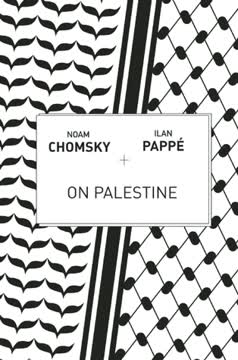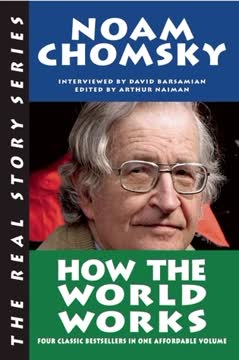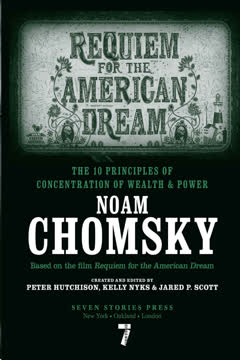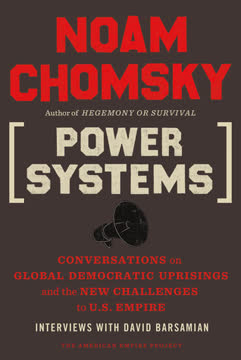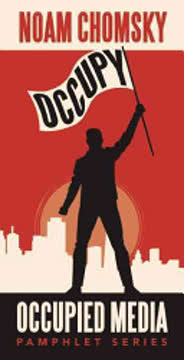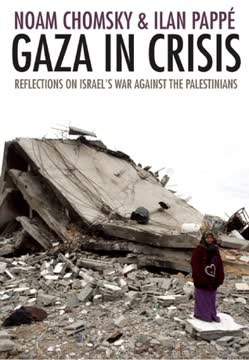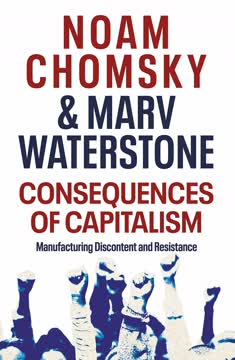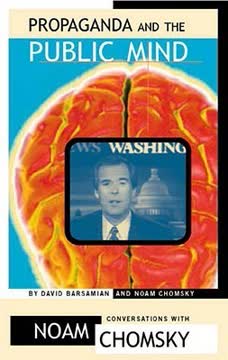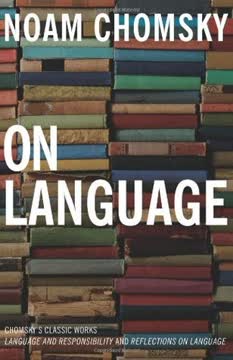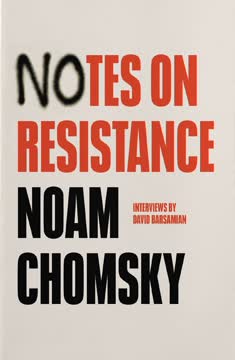Key Takeaways
1. Ignoring History: A Tactic of the Powerful
Oublier le passé implique d’oublier l’avenir, car le premier est porteur d’aspirations et d’espoirs en grande partie justifiés, qui pourraient se concrétiser dans le second si l’on y prête attention.
The powerful's agenda. Those in dominant positions often demand that the past be forgotten, effectively saying, "I've achieved my goals, so stop worrying. I'll simply take what I need." This tactic is universally employed to dismiss legitimate aspirations and hopes for a different future, particularly concerning the Palestinian Nakba of 1948. Forgetting the past means abandoning the future, as history holds the keys to understanding present injustices and shaping future possibilities.
Past as an obstacle. In the context of the Israeli-Palestinian conflict, the past is often treated as an inconvenient obstacle by those orchestrating the "peace process." Negotiators tend to define the relevant past as only the moment the peace process began, ignoring the foundational events like the 1948 ethnic cleansing. This selective amnesia allows for the perpetuation of the status quo, where the dismantling of illegal settlements, for instance, is deemed unthinkable.
Universal phenomenon. This selective amnesia is not unique to the Israeli-Palestinian conflict; it's a universal weapon of the powerful. President Obama, for example, urged Americans to "forget the crimes we committed, the invasion of Iraq, and move forward," which effectively means continuing to act as before. This approach serves to legitimize ongoing actions by erasing their historical context and consequences, ensuring that the powerful maintain their gains without accountability.
2. Zionism: A Colonial Project, Not Just an Ideology
Presque depuis le début du projet sioniste en Palestine, cette idéologie sous-tend essentiellement que le judaïsme, en tant que mouvement national, a le droit et l’ambition de posséder la plus grande partie possible d’une Palestine où devraient vivre le moins de Palestiniens possible.
Core tenet of Zionism. Zionism, as an ideology, has consistently aimed to acquire the largest possible portion of Palestine with the fewest possible Palestinians, a prerequisite for establishing a new Jewish homeland. This core principle has remained constant, even as the methods of colonization have adapted to changing circumstances and power dynamics. The indigenous population has invariably been viewed as an obstacle to the project's success.
Colonial-settler enterprise. The establishment of Jews in Palestine is undeniably a colonial-settler movement, akin to the formation of the United States, Australia, and other Anglo-Saxon nations. This historical context is crucial, as it explains the intuitive support Israel receives from these countries, based on a shared "we did it, so it must be right" mentality. This perspective often rationalizes the displacement or extermination of indigenous populations through notions of civilizational superiority.
Evolving definition. The meaning of Zionism has evolved significantly. Before 1948, it encompassed diverse views, including those advocating for a cultural center or a socialist, binational Palestine, without necessarily supporting a Jewish state. However, after 1948, Zionism became a state ideology, a "state religion," adapting to the state's needs by creating increasingly insurmountable obstacles to political agreements, such as demanding recognition of Israel as a "Jewish State."
3. The "Jewish State": An Aberration Justifying Discrimination
La notion d’État juif est une aberration totale. Elle n’a pas d’analogue dans le monde moderne.
Anomalous concept. The concept of a "Jewish State" is an anomaly in the modern world, lacking parallels in contemporary political systems. Unlike France, where every citizen is French regardless of background, Israel distinguishes between citizenship and nationality, denying an "Israeli nationality." This allows for the systematic discrimination against non-Jewish citizens, who are not considered equal members of the state.
Tool for suppression. This unique definition serves as a powerful tool to suppress criticism. Any critique of Israel is framed as an attack on the "Jewish State" and, by extension, on Judaism itself, effectively silencing dissent and granting Israel immunity from accountability. This tactic prevents a focus on the regime's inherent nature and its racist ideology, diverting attention to accusations of antisemitism.
Netanyahu's demand. When leaders like Netanyahu demand that Palestinians recognize Israel as a "Jewish State," they are imposing an impossible condition. No state has a "right to exist" that requires another people to legitimize their own oppression and exclusion. This demand is a deliberate barrier to peace, designed to ensure that negotiations fail and Israel can continue its expansionist policies.
4. The Holocaust: A Manipulated Narrative for Western Complicity
Consternés par leur découverte des camps de concentration, ils n’ont pas dit «Sauvons les survivants», mais plutôt «Arrangeons-nous pour que d’autres personnes paient le prix du sauvetage des survivants.»
Not the sole cause. While the Holocaust undoubtedly influenced the timing and urgency of Israel's creation, it was not the sole cause. Strong national institutions, military force, and significant support from powerful states (driven by Christian Zionism and imperial interests) were already in place. The British Mandate authorities actively facilitated the development of Jewish national institutions in Palestine, indicating a pre-existing trajectory towards statehood.
Post-war manipulation. The Holocaust's narrative was largely manipulated in the immediate post-war period. Despite the horrific conditions of concentration camp survivors, Western nations, particularly the United States, largely refused to accept them. Instead, Zionist emissaries directed these refugees to Palestine, often against their preferences. The Holocaust was primarily used as a tool to condemn the enemy, not as a call for universal humanitarian action.
Western complicity. This historical episode reveals a deep-seated imperialist mentality in the West: a willingness to acknowledge suffering but a reluctance to bear the cost of alleviating it, preferring that others pay the price. This complicity, rooted in anti-Arab and anti-Muslim sentiments, allowed for the triumph of Jewish Zionism by aligning it with Western imperial and theological interests, effectively sidelining the rights and existence of the indigenous Palestinian population.
5. The Right of Return: Unnegotiable Core of Palestinian Justice
La notion de nettoyage ethnique permet d’assurer que le droit fondamental des expulsés au retour ne soit pas oublié, même si Israël ne cesse de le bafouer.
Crucial for justice. The right of return for Palestinian refugees is a fundamental issue of justice, not merely a negotiation point. It encompasses both symbolic recognition of past wrongs and practical reparations. Israel's steadfast rejection of this right stems from a racist ideology that prioritizes Jewish supremacy and privilege, rather than practical concerns about demographics.
Beyond negotiations. For activists, the right of return is intrinsically linked to the moral legitimacy of Zionism and the nature of the contemporary Jewish state. It highlights that Israel's refusal is not about the feasibility of return but about maintaining an ethnically exclusive state. Therefore, the struggle against racism must transcend mere recognition or apologies, demanding a fundamental re-evaluation of Israel's identity.
A universal principle. Upholding the right of return is not a revolutionary demand but an adherence to universal principles of international law, which recognize the right of refugees to return to their homes after conflict. The international community, including the UN (Resolution 194), has affirmed this right. Abandoning it, as the "old pacifist orthodoxy" has done, betrays fundamental humanistic values.
6. Israel's Choice: Expansion Over Security Leads to Isolation
En 1971, Israël a pris une décision que je considère comme la plus déterminante de son histoire. L’Égypte venait de lui soumettre un traité de paix en bonne et due forme. Le gouvernement israélien de Golda Meir l’a évalué puis l’a rejeté, car il envisageait la colonisation du Sinaï.
Fateful decision. In 1971, Israel made a pivotal choice: prioritizing expansion over security by rejecting a full peace treaty with Egypt in favor of colonizing the Sinai. This decision set a precedent, with Israel consistently choosing territorial expansion over genuine security, leading it down a path of increasing isolation and "rogue state" status, much like apartheid South Africa.
Dependence on US support. Israel's ability to maintain this policy, despite international condemnation, hinges entirely on the unwavering support of the United States. Like South Africa, Israel understands that as long as Washington protects it, global disapproval holds little consequence. This reliance on a powerful patron allows Israel to disregard international law and opinion with impunity.
Erosion of legitimacy. This path is inherently self-destructive. While Israel's leaders express concern about "delegitimization," they continue policies that lead to moral degeneration and eventual self-annihilation. The erosion of support, particularly among younger generations in the US, mirrors the eventual shift in American policy towards apartheid South Africa, suggesting that this crucial external lifeline is not immutable.
7. Gaza: A Progressive Genocide Under International Complicity
Dans un article rédigé en septembre 2006 pour le webmagazine Electronic Intifada, j’ai qualifié la politique israélienne relative à la bande de Gaza de génocide progressif.
Calculated deprivation. Israel's policy towards Gaza, characterized as "progressive genocide," involves a calculated strategy of mass killing and destruction, stemming from its broader approach to Palestine. The "calm for calm" strategy means maintaining a cruel blockade and ensuring the population's survival is a daily struggle, while Israel continues its expansion in the West Bank. This policy aims to reduce the Palestinian population to a minimum through economic strangulation and geographical confinement.
Ghettoization and resistance. Gaza's unique geopolitical situation, particularly since the early 2000s, has led to its ghettoization, with the hope that its 1.8 million inhabitants would simply fade away. However, the ghetto has resisted, refusing to succumb to economic strangulation, isolation, and misery. When this resistance emerges, Israel responds with overwhelming military force, leading to repeated, devastating assaults that are inherently genocidal in their cumulative effect.
International complicity. The international community's muted response to these atrocities, often accepting Israel's self-defense narrative, is a critical factor. Western elites, including governments and mainstream media, continue to grant Israel immunity, even requesting the International Criminal Court not to investigate its war crimes. This double standard, where Israeli crimes are tolerated while similar atrocities elsewhere are condemned, enables the ongoing dehumanization and suffering in Gaza.
8. The "Peace Process": A Deceptive Cover for Ongoing Dispossession
Le cadre des négociations a tout simplement servi de couverture à ces politiques.
A charade for expansion. From the US and Israeli perspective, the "peace process" is a means to allow Israel to continue dismembering the West Bank, maintaining the Gaza blockade, and occupying the Syrian Golan Heights, all with Washington's backing. The two decades since the Oslo Accords have demonstrated that negotiations merely provide a smokescreen for these unilateral policies of colonization and annexation.
PA's limited options. The Palestinian Authority (PA) participates in this charade out of desperation and a lack of viable alternatives. Its funding and legitimacy are tied to its engagement with the US-led process. Rejecting Washington's calls for negotiation would risk the collapse of its external support, even as its leadership enjoys a comfortable lifestyle amidst a crumbling society. This creates a "schnorrer society" dependent on external aid.
Legitimizing Grand Israel. The "two-state solution," as interpreted by Israel and its international supporters, effectively legitimizes the creation of a "Greater Israel." This version would leave a fragmented, non-viable Palestinian entity, while Israel annexes key territories like the Jordan Valley, Greater Jerusalem, and major settlement blocs. This deceptive framework allows Israel to pursue its expansionist goals under the guise of seeking peace, with international blessing.
9. BDS: Strategic External Pressure is Key to Change
La campagne BDS va-t-elle dans ce sens? Elle le pourrait. Jusqu’ici, toutefois, sa contribution a été plutôt mince, voire néfaste, en raison de la façon dont elle est menée.
Ethical pragmatism. Activists must balance ethical principles with pragmatic considerations, focusing on actions that genuinely help Palestinians rather than merely satisfying their own conscience. The anti-apartheid movement serves as a model, successfully targeting specific policies while building broad public support. Actions like boycotting products from illegal settlements are effective because they directly impact the occupation and are easily understood by the public.
Targeting US complicity. A critical weakness of the BDS campaign has been its failure to adequately target the United States, whose support is absolutely essential for Israel's policies. Just as popular pressure eventually forced the US to abandon apartheid South Africa, a concerted effort to challenge Washington's military, economic, diplomatic, and ideological backing of Israel is crucial for any meaningful change.
Educational imperative. Effective BDS campaigns require a strong educational component to explain their rationale to the broader public. Without this, actions can be counterproductive, diverting attention from Israeli crimes and US complicity to debates about academic freedom or antisemitism, as seen with the American Studies Association resolution. Focusing on specific, well-researched instances of complicity, like the Bar-Ilan University's Ariel campus, would be more impactful.
10. Israeli Society: Deeply Indoctrinated, Yet Facing Internal Cracks
Le rouleau compresseur de l’endoctrinement a amalgamé la vieille phobie juive européenne des Gentils aux angoisses typiques du colon envers l’autochtone pour créer une terrifiante variante locale du racisme.
Pervasive indoctrination. Israeli society is profoundly indoctrinated, from birth to death, with a non-coercive yet intensive system that fuses historical Jewish phobias with settler anxieties towards indigenous populations. This creates a deeply ingrained, often extreme, form of racism that makes internal change incredibly difficult. The constant cycle of violence reinforces the belief that their actions are justified, making it hard for Israelis to distinguish between the violence itself and its root causes.
Economic polarization. Despite the ideological cohesion, Israel faces growing internal challenges, particularly economic polarization. The middle class is shrinking, and wealth is increasingly concentrated, leading to social unrest. While past protests, like those on Rothschild Boulevard, avoided the Palestinian issue, the underlying socioeconomic fragility could eventually undermine the state's stability, as even intense ideological indoctrination cannot indefinitely mask economic hardship.
Signs of dissent. Despite the overwhelming chauvinism and ethnocentrism, a small but growing minority of young Israelis are questioning Zionism and engaging in new forms of activism, such as Anarchists Against the Wall and New Profile. While not yet a mass movement, their emergence, coupled with external pressure, offers a glimmer of hope for a different future. The increasing number of Israelis seeking dual passports also suggests an underlying awareness of the state's precarious long-term viability.
11. The One-State Solution: An Ethical Vision for a Shared Future
Il est inutile de réfléchir à une solution à deux États. On doit plutôt trouver les moyens de redéfinir les relations entre les communautés et de faire bouger les pouvoirs en place.
Beyond the two-state illusion. The "two-state solution" has become an obsolete and deceptive framework, serving primarily to legitimize Israel's expansionist project. Given the realities on the ground—a single, undemocratic, apartheid-like state already in existence—the focus should shift from a futile two-state negotiation to transforming the existing power structures and redefining relations between communities.
Ethical imperative. The one-state solution, based on the principle of full equality and civil rights for all inhabitants, including the right of return for Palestinian refugees, represents the most rational and humanistic path forward. It challenges the racist foundations of the "Jewish State" and envisions a shared future where all individuals, regardless of ethnicity or religion, can live together in dignity and cooperation.
A new lexicon. This requires a new lexicon, replacing terms like "peace process" with "decolonization" and "regime change." The goal is to dismantle the current system of segregation and discrimination, not merely to manage it. While challenging, this vision offers a concrete alternative to the ongoing suffering and could, with sustained external pressure and internal Palestinian unity, create a positive dynamic that shifts the balance of power.
Last updated:
Review Summary
On Palestine by Chomsky and Pappé examines the Israeli-Palestinian conflict, arguing it's a case of settler colonialism and ethnic cleansing supported by Western powers. The authors critique Israel's policies, the ineffectiveness of the two-state solution, and the role of the US in perpetuating the conflict. While some readers found it informative and thought-provoking, others criticized its bias and lack of Palestinian voices. The book is praised for its clarity in explaining complex issues but may require prior knowledge of the conflict's history.
Similar Books
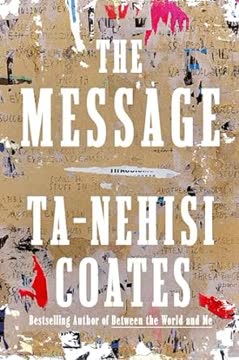
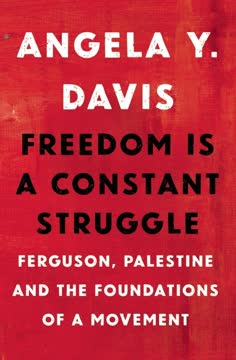
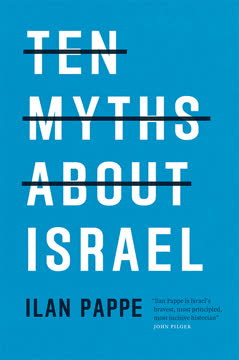
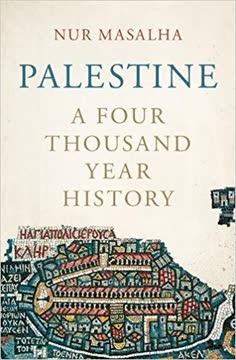

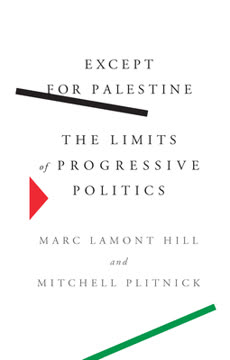
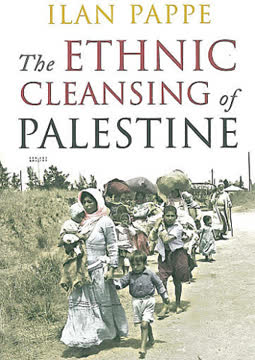
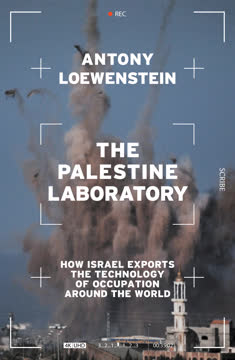
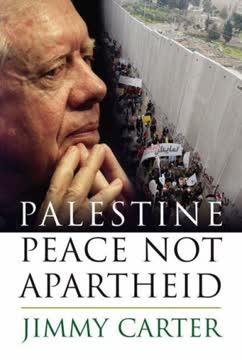
Download PDF
Download EPUB
.epub digital book format is ideal for reading ebooks on phones, tablets, and e-readers.
